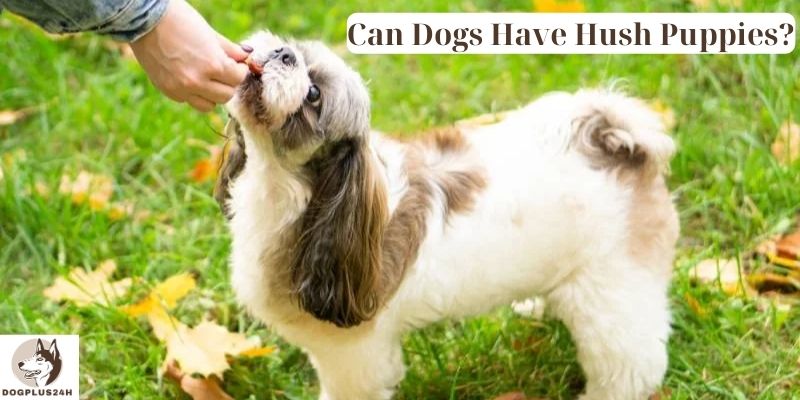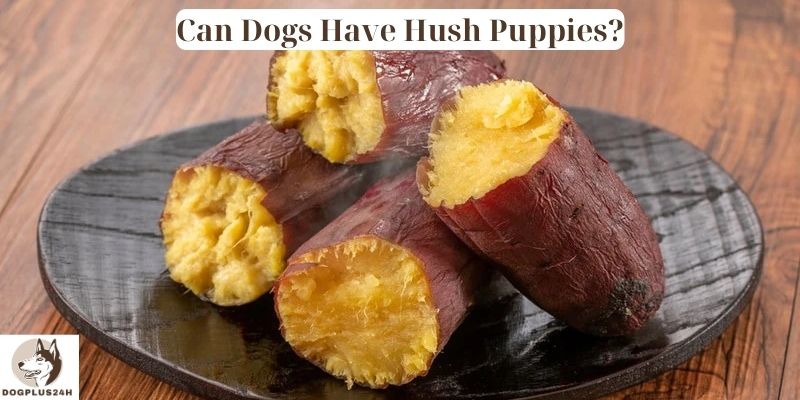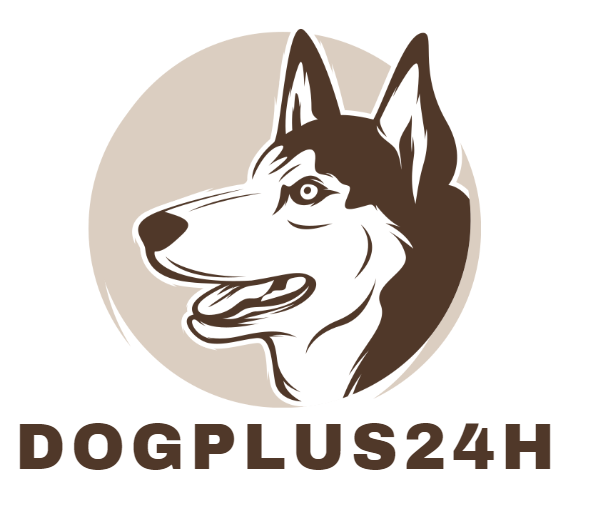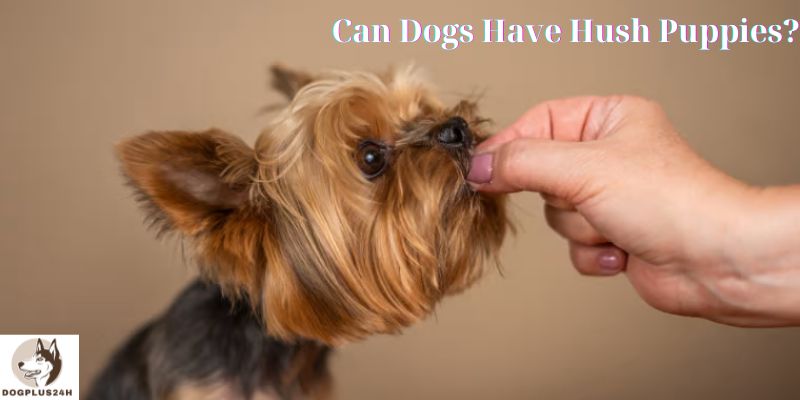You’re not the only one who has ever wondered Can Dogs Have Hush Puppies. In actuality, we frequently get asked this question. I’ll finally provide an answer to that query today. Dogplus24h.com contacted a few veterans to seek their perspectives in order to make sure I had the most correct facts.
So, Can Dogs Have Hush Puppies? Yes, in a nutshell, but they shouldn’t. Hushpuppies are created with cornmeal batter and deep-fried. Foods that have been fried are not the greatest for either humans or animals. So even though theoretically your dog can eat hush puppies, it’s not advised because there is no nutritional value.
Can Dogs Have Hush Puppies? 8 Best Reasons Below
Can Dogs Have Hush Puppies? Being omnivores, dogs will eat hush puppies. The main concern is whether your dog will be safe. Technically, consuming hush puppies by dogs poses no immediate harm. However, it doesn’t provide your dog with enough nutrition as food.
Cornmeal, wheat flour, buttermilk, eggs, and salt are among the ingredients; these are not suitable ingredients for your dog’s diet. For your pet, none of these components are advised.

1. Hush Puppies Are Hazardous To Your Dog’s Health
First off, none of the ingredients are healthy. Second, because they are deep-fried, your dog cannot eat them. Thirdly, they have a high glucose content, which prevents them from being digested in big quantities. Giving your dog hush puppies on occasion won’t have any negative effects. However, doing so frequently could endanger your dog’s health and make them ill.
2. High Fat Content
Hush pups are extremely chubby. In reality, depending on the recipe, a single hush puppy, which weighs about 22 grams, may contain 13.5% fat or even more.1 A hush puppy will have too much fat no matter how you prepare it, although frying them in less oil will help. Furthermore, they are very high in calories, so it won’t take many hush puppies for your dog to start gaining weight.
An upset stomach (vomiting and diarrhea) and chronic obesity, which is a risk factor for diabetes, can result from too much fat in your dog’s food. In the past, eating fatty food has been linked to a higher risk of pancreatitis (pancreatic inflammation) in dogs2, but current research has not yet shown a direct link between the two. However, there is little doubt that an animal’s risk for pancreatitis is raised by their obesity and high abdominal fat content. Diets with 10–15% fat are regarded as having a moderate level of fat. High-fat foods are those that contain more than 20% fat.
3. Don’t Give Your Dog Oil And Salt
Remember that the elements in hush puppies, particularly the oil and salt, are generally healthful if you still want your dog to consume them. Most of the oils utilized are trans-fat-rich canola or vegetable oils.
Salt can cause dehydration, excessive thirst, and the urge to urinate often in dogs if they consume it in excess. Their kidneys may suffer if they consume salt over an extended period of time. Salt toxicity in dogs has occasionally been documented. As a result, it’s a good idea to prevent kids from consuming fried and salty meals like hush puppies.
4. Hush puppies may make your dog gain weight.
Can Dogs Have Hush Puppies? Hushpuppies contain both fat and carbohydrates. Feeding your pet frequently results in weight gain and dull appearance. It is unquestionably a horrible idea to bring your dog to a tournament. If you believe that it would be a great way to make your slender dog bulkier, it is not a healthy weight increase.
Why? mainly because a diet high in protein and nutrients can help your dog gain a healthy amount of weight. Saying no to these worthless calories is therefore preferable.

5. If your dog eats husky puppies, he might become lethargic.
Unhealthy diets make people lazy, and your dog would experience the same effects. Regular consumption of hush puppies might make your dog unmotivated, sluggish, and inactive. It might occasionally feel bloated. Over time, sluggishness will lead to weight gain. Any dog will have a shorter life if they maintain a sedentary lifestyle.
6. If Your Dog Eats Hush Puppies, They Might Get Horrific Gas Or Diarrhea
Can Dogs Have Hush Puppies? Hush puppies are fried food, so there’s a good risk they’ll make the dog’s stomach unhappy. In the worst instance, it could also result in diarrhea or other digestive issues. Your dog will lose a lot of fluid during diarrhea, which will make him sickly and frail. Visit your veterinarian right away if the illness worsens.
7. Sodium Level
Hush puppies have a lot of salt, which is bad for humans but far worse for dogs. Because dogs’ bodies are smaller than ours, lesser salt amounts can create more serious issues.
While certain hush puppies may have less sodium than others, they almost certainly all contain an excessive amount of sodium for dogs. A hush puppy has 147 mg of salt in it.3 For dogs, the “official” daily minimal salt requirement ranges from 5 to 13.3 mg/kg of body weight. This suggests that a 10 kg dog requires at least 50 to 133 mg of sodium daily, which is equivalent to 1/3 to virtually ALL of a hush puppy’s salt content.
Dogs consuming 2000–3000 mg/kg of sodium may become poisoned as a result of ingesting too much salt.4000 mg/kg of consumption might be deadly. According to this, a medium-sized dog would have to consume a lot of Hush Puppies before consuming enough salt to be problematic. However, keep in mind that your dog also consumes salt from other foods, making it simple to overdose them if you give them treats with a lot of salt, especially if they are small or miniature breeds.
8. Pancreatitis
A single hush puppies won’t cause pancreatitis in your dog, but if you regularly give them table scraps, it’s a very serious and possible conclusion. As we already explained, dogs who regularly consume too many meals heavy in fats and oils, such as hush puppies, might get pancreatitis.
What Should You Do If Your Dog Eats Too Many Hush Puppies?

So you’re wondering what may happen if your dog ate some hush puppies and what you ought to do. I got in touch with my father, Dr. Littlejohn, to ask for his advice so I could give you the best response possible. To sum up, he inquired about the following key subjects:
- Consumption & Dog Size
- Dog’s Energy Level Based On Food Consumption Ingredients
- Unusual Behavioral Changes Physical Pain Or Discomfort Signs
- Habits of Eating and Drinking
- Descriptions of Vomit and Poop
- Gum Shade
These are the key inquiries I’ve observed vets make, but every circumstance will differ slightly. When your dog overeats, keeping a watch on these signs will help you figure out whether something is wrong.
You are probably correct if you suspect something is wrong because you know your dog best. If you know they ate something harmful or you think there may be a problem, you should always seek medical help. An upset stomach is the most frequent worry when it comes to hush puppies.
An upset stomach may show these symptoms:
- Vomiting
- With or without blood or mucous in the diarrhea
- Indigestion Extra gas
- Having no appetite
- Dehydration
- Continent pain
- Increasing or decreasing abdominal size
- Discomfort or an inability to relax

After your dog’s digestive system has had time to process the meal, these symptoms typically go away. Vomiting and diarrhea are probably going to occur, but it should go away in a few days. Just make sure your dog is drinking plenty of water, and contact your veterinarian if your dog displays any severe symptoms or if you have any concerns.For immediate assistance, you can also use online services to chat with a veterinarian directly.
Alternatives for Safe Dog Treats
The fact that you shouldn’t give your dog hush puppies doesn’t mean you can’t give them other fantastic treats when they come over pleading for a snack. Here, we’ve selected five excellent dog treat options.
1. Carrots
Carotene and other vitamins are abundant in cooked and raw carrots, both of which are excellent for your dog. However, if you’re giving your puppy raw carrots, be careful to cut them into pieces that won’t put your dog in danger of choking.
2. Watermelon
On a hot day, your dog could love the sweet taste of watermelon. Don’t overfeed your dog due to the greater sugar content; remove the seeds first. Even yet, dogs adore it, and since it is primarily water, your dog will drink a lot of it.
3. Broccoli
Broccoli can be fed to dogs raw or cooked, however, cooked broccoli is a little simpler for dogs to digest. It has a ton of vitamins and is high in fiber. Simply leave out any seasonings because they aren’t usually healthy for your pet to consume.
4. Bananas
Another sweet treat that your dogs can have in moderation is bananas. Although they include a ton of healthy components, you shouldn’t consume too many of them due to their high sugar content.
5. Strawberry
The essential component for your dog, vitamin C, is abundant in strawberries. Strawberries are heavy in sugar, so you should only give them to your dog in moderation—much like bananas and watermelon. Before giving it to your dog, always make sure the stem is entirely removed.
7. Sweet potatoes cooked

Although cooking sweet potatoes may not be the simplest thing for you to find in your cupboard, it may be your dog’s preferred nutritious treat. Don’t add any additional seasonings or flavors when cooking the sweet potatoes.
However, you can give your dog a quick snack choice by storing cooked sweet potatoes in the refrigerator for a few days. However, avoid giving your dog any raw sweet potatoes because they could upset their digestion. They are challenging to chew and, if ingested whole, can become lodged in the dog’s esophagus or back of the throat, or possibly cause a blockage in the stomach or intestines. These all require medical attention from a veterinarian.
Other Foods You Should Never Feed Your Dog
Generally speaking, you shouldn’t feed human food to your dog. However, we’ve identified five of the items that are particularly bad for your dog’s health in this article. To keep your pet safe, keep these foods far away from them.
1. Xylitol
You can find xylitol, an artificial sweetener, in numerous meals and toothpaste. While it’s safe for humans to consume, even minute amounts of it can be exceedingly hazardous for dogs.
2. Macadamia Nuts
Even though macadamia nuts are not the most well-known poisonous food for dogs, even a small amount can cause them to become seriously ill. They are all hazardous to dogs, whether they are raw or roasted.
3. Chocolate
The most well-known poisonous food for dogs is likely chocolate, and for good reason. Theobromine, caffeine, and a ton of sugar are all exceedingly harmful tremendous dogs. Never offer your dog any kind of chocolate since it contains theobromine, especially white chocolate.
4. Bones
Cartoons frequently feature dogs chewing on bones. Although it might be a familiar sight in television shows and movies, you shouldn’t give your dog this in real life. Bones can cut or obstruct a portion of your dog’s digestive tract or splinter, which poses a choking risk. They can also splinter and cause choking.
5. Dairy and Milk
Due to their lactose intolerance, dogs should not be given any milk or dairy products. They shouldn’t die from a little bit, but it can be quite painful and cause a variety of stomach problems.


